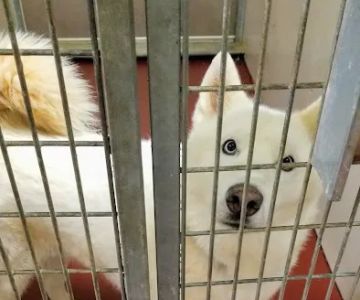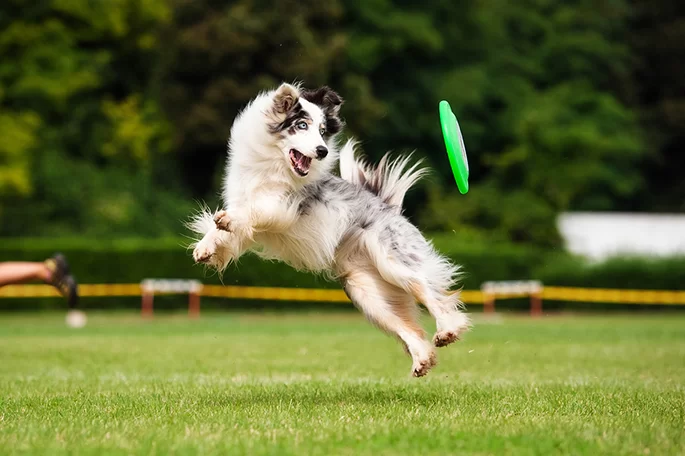How to Give Your Dog Daily Exercise: Tips for a Healthy and Active Lifestyle
- Importance of Daily Exercise for Your Dog
- Choosing the Right Exercise for Your Dog
- Creating a Daily Exercise Routine
- Common Exercise Mistakes to Avoid
- Tips for Keeping Your Dog Motivated
- Products to Enhance Your Dog’s Exercise
1. Importance of Daily Exercise for Your Dog
Exercise is a fundamental aspect of a dog's health. Just like humans, dogs need regular physical activity to stay fit, mentally stimulated, and emotionally balanced. A lack of exercise can lead to a host of health problems, including obesity, joint issues, and behavioral problems like excessive barking or chewing.
By providing your dog with daily exercise, you're not only helping them stay in top physical condition but also improving their mood and overall quality of life. Regular exercise helps release pent-up energy, reduces stress, and strengthens the bond between you and your pet.
2. Choosing the Right Exercise for Your Dog
Every dog is unique, and their exercise needs can vary depending on their age, breed, and health status. While all dogs need regular exercise, it's important to tailor the type of activity to suit their individual needs. Here’s how you can choose the right exercise:

845 W Ridge Rd, Gainesville, GA 30501, USA
See DetailsFor High-Energy Dogs:
Active breeds like Border Collies, Labrador Retrievers, and Australian Shepherds have lots of energy to burn. These dogs thrive on high-intensity activities like running, hiking, or playing fetch. Consider longer walks, jogs, or even agility training to keep them engaged.
For Older or Low-Energy Dogs:
Older dogs or those with health conditions may not be able to handle high-intensity exercise. For them, short walks, slow-paced strolls in the park, or gentle playtime may be more suitable. Swimming is also a great low-impact option for dogs with joint problems.
For Small or Toy Breeds:
Smaller breeds like Chihuahuas or Dachshunds don’t need as much exercise as larger dogs. A daily walk or a bit of indoor playtime should suffice. It's important to keep in mind that even small dogs need mental stimulation through activities like puzzle toys or training exercises.
3. Creating a Daily Exercise Routine
Creating a consistent exercise routine is key to maintaining your dog’s health and happiness. A routine helps your dog know what to expect, which can make them more eager and less anxious during exercise time. Here’s how to create a daily routine:
Set a Consistent Time:
Try to exercise your dog at the same time each day. Dogs thrive on routine, and knowing when their next walk or play session is coming can make them more relaxed and excited for it.
Vary the Exercises:
While consistency is important, it’s also good to mix up the types of exercises you do with your dog. One day, you might go for a brisk walk, while the next day, you could play fetch or take them to the dog park for socialization and exercise. Variety keeps things interesting for both you and your dog.
Incorporate Training Sessions:
Training your dog is a form of mental exercise that is just as important as physical activity. Incorporating short training sessions into your daily routine helps to stimulate your dog’s mind, improve their behavior, and strengthen your bond.
4. Common Exercise Mistakes to Avoid
While it’s great to provide your dog with exercise, there are some common mistakes that pet owners often make. Avoid these pitfalls to ensure that your dog stays healthy and enjoys their exercise:
Overexercising:
It’s important not to overdo it, especially with puppies, older dogs, or dogs with health issues. Overexercising can lead to joint problems, exhaustion, or injury. Start slow and gradually increase the intensity and duration of exercise as your dog’s fitness level improves.
Neglecting Rest Days:
Just like humans, dogs need rest days to recover. Make sure your dog gets plenty of downtime to rest and recharge between exercise sessions.
Ignoring Weather Conditions:
Exercise should be adjusted based on the weather. Avoid exercising your dog during the hottest parts of the day in summer, as overheating can be dangerous. Likewise, cold and wet conditions may require shorter or less intense sessions for your dog’s comfort and safety.
5. Tips for Keeping Your Dog Motivated
Sometimes, getting your dog excited for daily exercise can be a challenge. Here are some tips to keep your dog motivated and eager to move:
Use Fun Toys:
Introduce interactive toys that engage your dog’s natural instincts. Toys like tug ropes, balls, or frisbees can make exercise time more enjoyable and stimulating.
Incorporate Rewards:
Use treats or praise to reward your dog after a successful exercise session. Positive reinforcement encourages your dog to associate exercise with good things, making them more excited to do it every day.
Join a Dog Class or Group:
Sometimes dogs need extra motivation from other dogs. Joining a dog park or group walk can turn exercise into a fun social event, and your dog will enjoy the interaction with other pets.
6. Products to Enhance Your Dog’s Exercise
If you're looking to take your dog’s exercise routine to the next level, there are some great products on the market that can help. Here are a few options:
- Chuckit! Ball Launcher: This toy allows you to play fetch with your dog for extended periods without tiring your arm. Perfect for high-energy dogs.
- FitBark Activity Monitor: A fitness tracker for dogs that tracks their daily activity and provides insights into their exercise levels. It’s a great way to monitor your dog’s fitness and adjust their routine accordingly.
- Dog Treadmill: For days when outdoor exercise isn’t an option, a treadmill designed for dogs offers a controlled environment for your pet to burn off energy safely.
For more advice on keeping your dog active and healthy, visit Hidden Brook Veterinary for expert tips and product recommendations.











